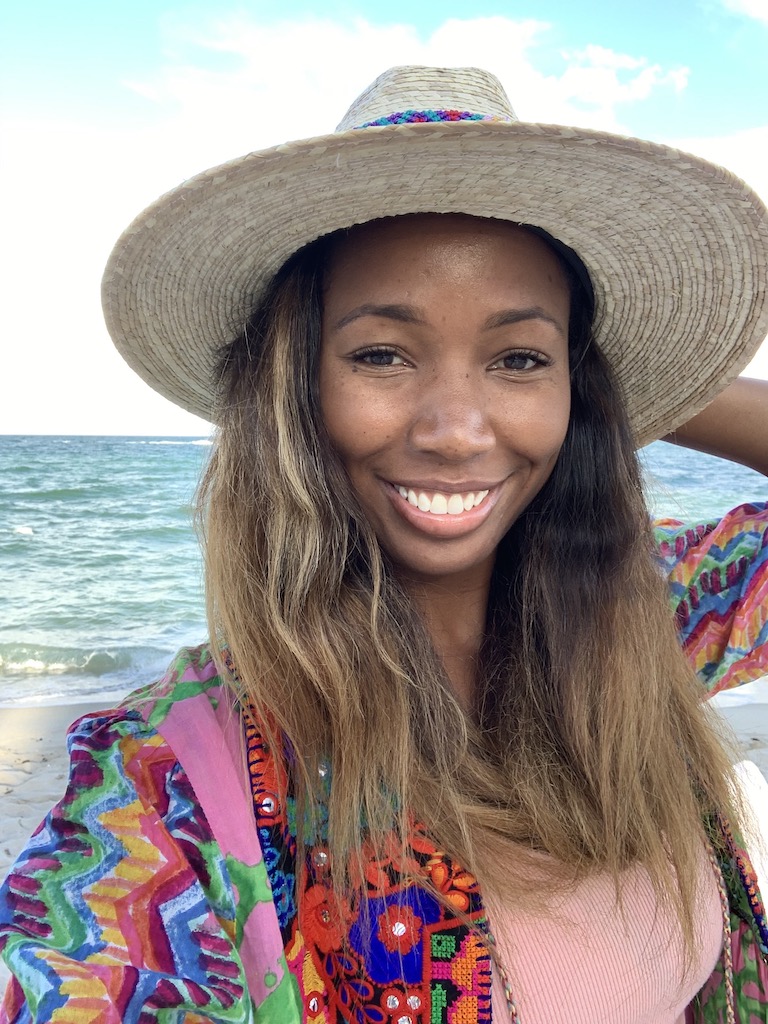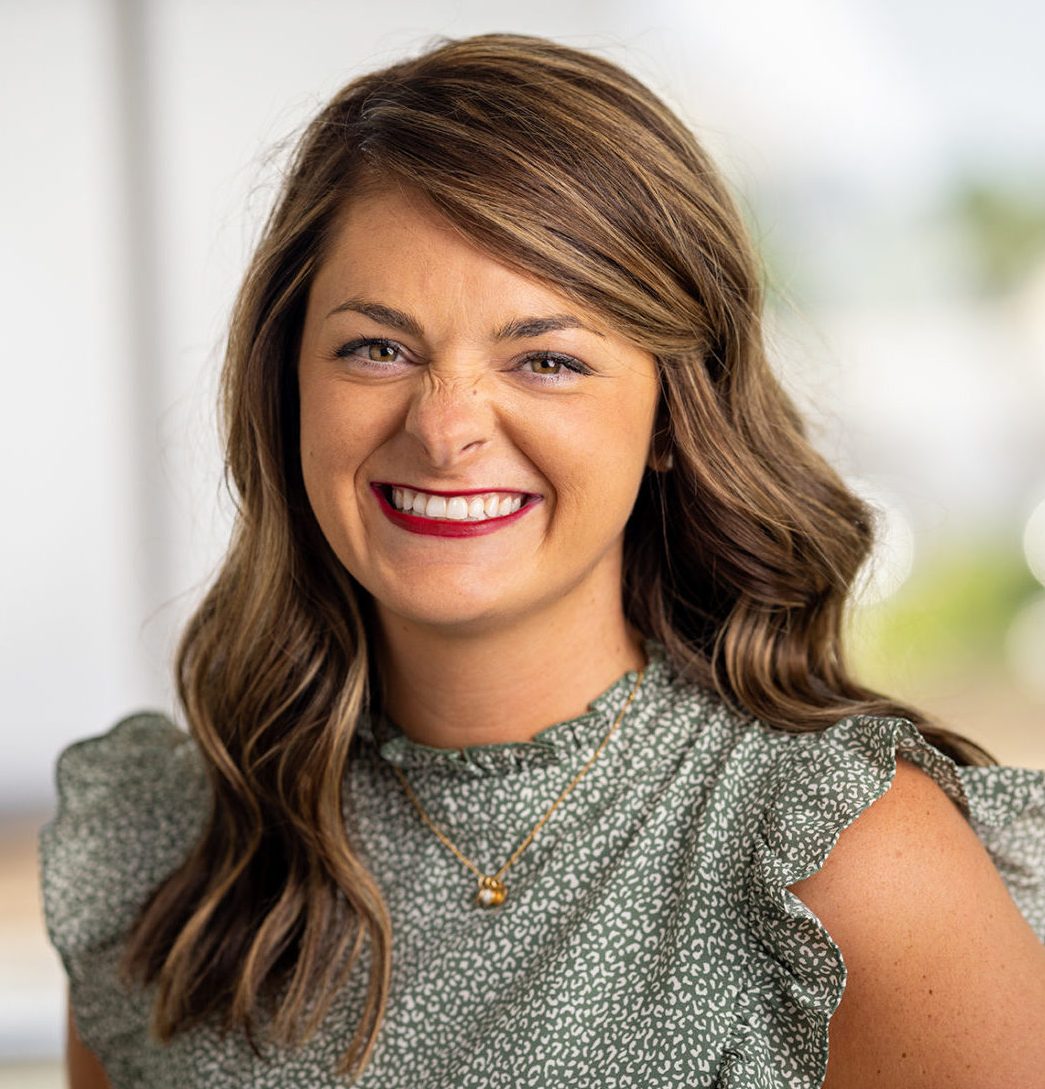In the spotlight with Jade Smith, Director of Strategy & Operations at Fundrise

Charles Aris Executive Search vice president Ashlee Wagner recently spoke with Jade Smith, director of strategy and operations at Fundrise.
 Jade Smith (she/her) is the Director of Strategy & Operations at Fundrise. Jade has been at Fundrise since March 2021 after more than a year as the Director of Operations at hospitality company, Selina, and two years in consulting at Boston Consulting Group. Her biggest career accomplishment was a passion project planning and hosting an outdoor pop-up bar in D.C. in October 2020, which reinforced her love for business and operations from ideation to execution. Jade graduated from Barnard College with a bachelor’s degree in Africana studies and human rights and earned her MBA from Harvard Business School. Jade is originally from Bowie, Maryland, but currently lives in Washington, D.C. In her free time, Jade is often running with a local track club, biking (or attempting to skateboard) or indulging in delicious food at old and new spots around the city.
Jade Smith (she/her) is the Director of Strategy & Operations at Fundrise. Jade has been at Fundrise since March 2021 after more than a year as the Director of Operations at hospitality company, Selina, and two years in consulting at Boston Consulting Group. Her biggest career accomplishment was a passion project planning and hosting an outdoor pop-up bar in D.C. in October 2020, which reinforced her love for business and operations from ideation to execution. Jade graduated from Barnard College with a bachelor’s degree in Africana studies and human rights and earned her MBA from Harvard Business School. Jade is originally from Bowie, Maryland, but currently lives in Washington, D.C. In her free time, Jade is often running with a local track club, biking (or attempting to skateboard) or indulging in delicious food at old and new spots around the city.
What are the top three responsibilities in your role today?
Internal communication and organizational effectiveness is a big one. This takes on many shapes and forms. Internal communication has been a big area of focus we’ve prioritized as an organization as we continue to grow in the hybrid work environment. This includes making sure people are aware of priorities and how we plan to grow, as well as coming up with a clear cadence of meetings (i.e., Who will be involved? Is it an update-style meeting or decision making?). Prior to joining, internal communication did not sit with a single person, and while it is part of every manager’s job, I have taken it on given the cross-functional nature of my role. I manage two key meetings – one is an all-staff monthly meeting and the other is a monthly management meeting; both are critical to ensure everyone stays aligned.
Strategic management and project implementation is second. There are a number of cross-functional projects still in a confidential state that I work on with our CEO and COO. I help them think through implications, project manage and keep people on track with their key tasks. This can involve both internal and external stakeholders.
Given the state of the world, forming a plan around the hybrid work environment and the future of work is another responsibility I have taken on. Fundrise will probably continue to work in a hybrid / remote environment as we continue to hire talent outside of the Washington, D.C. area where our HQ is based. We did a robust survey to get a sense for if people prefer to remain remote, come into the office or assume a hybrid role; what resources they need to support their hybrid work; and how they’d like to use our office if and when physically present. We’re working with designers to make our office better equipped for a hybrid work environment and the reason why people would want to come in – be that using a phone booth for private calls because there isn’t a quiet place at home or a social setting to interact with and get to know colleagues. It’s been a fun and interesting project. There are a number of other components we’re thinking through to ensure it’s a safe environment considering we’re not post-COVID yet.
For people interested in a similar career path to yours, what are the skills and competencies most important for success?
First and foremost is having an analytical approach to problem-solving, even if it means you’re not the one in the spreadsheet doing that analysis. You should be able to think about first, second and third order implications of a decision. When you see data, being able to see how the pieces fit together and the potential impact the organization as a whole is important.
I would also heavily value the ability to engage with people and manage stakeholders and generally have high emotional intelligence – it sounds simple but it’s critical. Someone who is a strong communicator, engages well with stakeholders and can work well with different personalities and potential skeptics will go far. There’s always an element of change management in a role where you don’t have ownership of a particular area, but instead have to connect the dots between multiple areas and manage through influence.
There’s also project management as a whole, but more specifically thinking through all of the discrete tasks that need to be done to accomplish a larger goal. As a former consultant, I’ve undervalued this. It doesn’t come easy but being able to keep your team on task and focused on the right details is crucial. Be detail oriented but also keep the big picture in mind.
Another piece is being able to handle a dynamic, fluid role where your job responsibilities are not always going to be perfectly laid out. Someone who is not rigid and willing to be flexible will do best in a new strategy role, particularly within a start-up environment.
What’s the best career development advice that you’ve ever received?
I had a mentor in my first role out of undergrad in finance, a woman 10-15 years my senior. She told me to always consider other employment opportunities. Even if you don’t want to leave, it helps you know your worth, understand what is out there, etc. It doesn’t mean you should look at jobs every single day, but when you start to feel stuck in a role or an organization or realize you’re underpaid, it can be an incredible catalyst to something better, and at a minimum, a confidence booster. This advice has led me to incredibly interesting career opportunities, including the role I am in today!
What has been the most impactful event in your life that has driven success in your career?
There are a few defining “aha” moments for me. One was after doing a couple years in consulting. Up to that point in my life, my education and career had been very well-thought-out. I thought I’d need to be on a certain path to find success. It can be the case for certain professions, but after having that experience, I realized I didn’t want to be within a box, I wanted to explore my options.
Over my career, I realized leadership was super important to me in any career move – specifically trust in leadership and value alignment, as well as the broader culture of the organization. People talk about it but take it for granted in certain organizations. As I’ve grown in my career, it’s become more and more important to me. I also think as a society, we’ve started to value this more. Working through crises over the last few years has helped amplify this.
What do you miss most from your time in consulting?
It’s an incredibly efficient and effective way to approach problems. That was a huge take away for me from consulting. I’ve realized you have to be trained to think that way; it’s not common. When you go into strategy roles, you can be a team of one, so it’s harder to do that alone.
What’s the one app you can’t live without?
WhatsApp. It’s pivotal for communicating with friends all over the world, especially during COVID. WhatsApp helps me stay connected and video chat with friends.
What’s the last book you read or media you consumed?
I listened to a cool NPR podcast yesterday, a bonus episode from ThroughLine about archeology and the collapse of civilization after the Bronze Age. Learning about other civilizations and languages is fascinating to me. This was top of mind for me as I just traveled to the Mediterranean where the preserved architecture is significantly older than in the United States. It’s always fun to feel like you’re going back in time and removing yourself from the current day to day reality.
How do you keep yourself sane in a 24-hour work world?
As most have during COVID, I’ve been more grounded at home lately. I’ve rediscovered my city and joined a running club, which has been an awesome community – we not only run together, we socialize. I love it so much and am now a captain of the club. That’s been a huge source of sanity and a component of work-life balance for me. I treat Track Tuesdays at 6:30 p.m. as sacred and have communicated this to my colleagues.
SIMILAR ARTICLES
Meaningful conversations: How our deal-sourcing team connects with founders
We launched our transaction services business with the guiding philosophy that meaningful conversations lead to successful deals.
The new era of workplace wellness at Charles Aris
Throughout the past year, we’ve also integrated firmwide activities into our culture to promote healthy meditation, social events and exercise.
Charles Aris in the community
Our firm places a high value on giving back to our communities, and our team members have been working alongside several organizations to do so.


